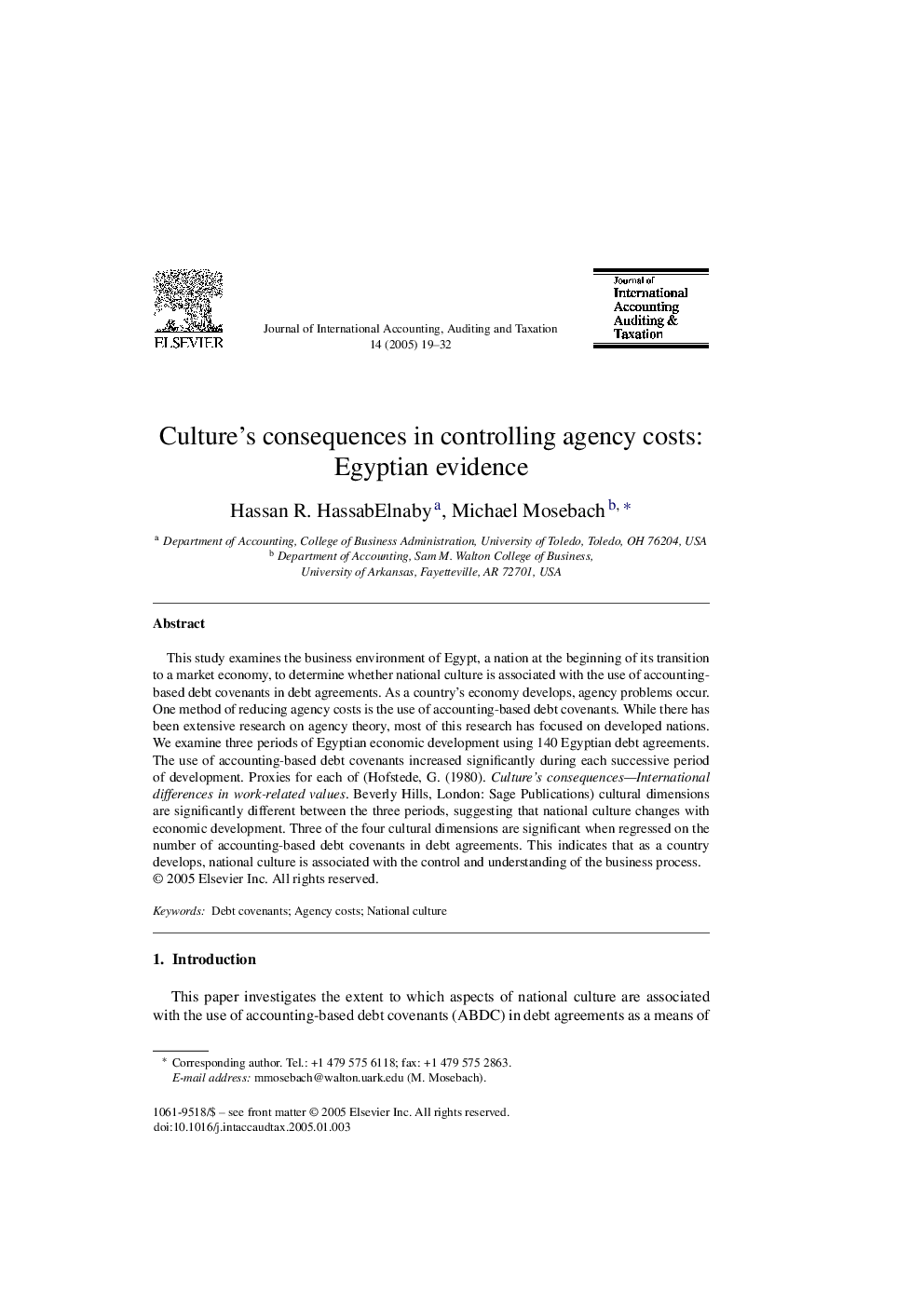| Article ID | Journal | Published Year | Pages | File Type |
|---|---|---|---|---|
| 10488838 | Journal of International Accounting, Auditing and Taxation | 2005 | 14 Pages |
Abstract
This study examines the business environment of Egypt, a nation at the beginning of its transition to a market economy, to determine whether national culture is associated with the use of accounting-based debt covenants in debt agreements. As a country's economy develops, agency problems occur. One method of reducing agency costs is the use of accounting-based debt covenants. While there has been extensive research on agency theory, most of this research has focused on developed nations. We examine three periods of Egyptian economic development using 140 Egyptian debt agreements. The use of accounting-based debt covenants increased significantly during each successive period of development. Proxies for each of (Hofstede, G. (1980). Culture's consequences-International differences in work-related values. Beverly Hills, London: Sage Publications) cultural dimensions are significantly different between the three periods, suggesting that national culture changes with economic development. Three of the four cultural dimensions are significant when regressed on the number of accounting-based debt covenants in debt agreements. This indicates that as a country develops, national culture is associated with the control and understanding of the business process.
Related Topics
Social Sciences and Humanities
Business, Management and Accounting
Accounting
Authors
Hassan R. HassabElnaby, Michael Mosebach,
